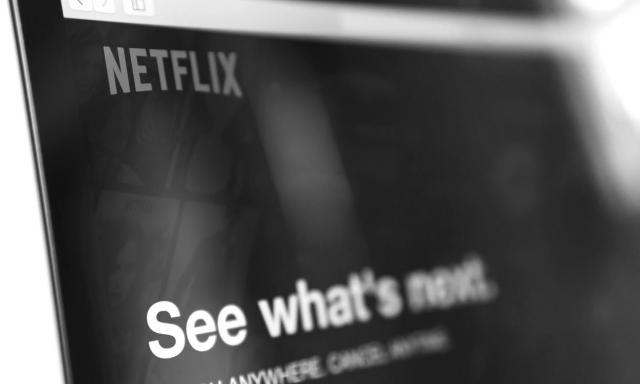

 Article
Article

 Trust is built slowly and erodes quickly. Netflix was lauded as an inclusive employer, but when it aired Dave Chappelle’s controversial special The Closer, it seemed unprepared for backlash from multiple stakeholders, including the LGBTQ+ community. What could it have done better to balance the paramount issues of freedom of speech and inclusivity?
Trust is built slowly and erodes quickly. Netflix was lauded as an inclusive employer, but when it aired Dave Chappelle’s controversial special The Closer, it seemed unprepared for backlash from multiple stakeholders, including the LGBTQ+ community. What could it have done better to balance the paramount issues of freedom of speech and inclusivity?

Insights from
Written by
In standing by controversial comedian Dave Chappelle, did Netflix betray the trust it spent years cultivating with LGBTQ+ employees?
In 2021, after being widely lauded as an inclusive employer, the streaming giant aired Chappelle’s special The Closer. Although Netflix knew Chappelle was a polarizing figure, leadership was unprepared for the backlash from employees, writers, and prominent advocacy groups over The Closer, which one critic dubbed “a joyless tirade of incoherent and seething rage, misogyny, homophobia and transphobia.”
How could Netflix find a way forward that balanced business, free speech and company values?
Netflix has long been a nimble, innovative company with an almost preternatural ability to meet a cultural moment. In the early 2000s, it put retail giant Blockbuster Video out of business by mailing consumers DVDs, saving them a trip to a store. When streaming entertainment arose, Netflix dominated.
But the streaming giant was known for more than just delighting viewers. The company had worked hard to become a premier employer, able to recruit and retain top talent based on a workplace culture that prized excellence, candor, transparency and inclusivity. Indeed, nearly half its employees came from underrepresented backgrounds.
As it entered its third decade in business, Netflix sat pretty with roughly 600 million viewers globally, original content that had netted eight Academy Awards, and best-in-class comedy programming featuring stand-up specials commissioned from both emerging and established players. Chappelle was the latter, a massive talent that Netflix paid commensurately: $100 million for six specials.
But the relationship with Chappelle seemed to be proving costly in ways that weren’t immediately recorded on the bottom line. After The Closer aired, a transgender employee condemned Netflix in a tweet that went viral. GLAAD and the Human Rights Campaign also denounced The Closer. Jaclyn Moore, a transgender writer and showrunner for two popular Netflix series, Dear White People and Queer as Folk, said she would no longer work with the company. Hundreds of Netflix employees staged a virtual walkout, while other workers pushed back against perceived cancel culture. One counter-protestor’s sign reportedly read “I’m just here for the jokes.”
By their own admission, Netflix top brass did not anticipate or respond effectively to the Chappelle controversy. The company suspended and then reinstated employees who’d tried to attend a director-level meeting to protest the affiliation with Chappelle. Co-CEO Ted Sarandos initially defended The Closer by saying it was not hate speech, but days later, he acknowledged in an interview with The Hollywood Reporter that “I should have first and foremost acknowledged … that a group of our employees were in pain, and they were really feeling hurt from a business decision that we made.” His initial emails on The Closer “lacked humanity,” he said.
Although Netflix eventually struck a more conciliatory tone with employees, it did not pull The Closer or distance itself from Chappelle. Netflix has continued to release the comedian’s work: What’s in a Name (2022) and The Dreamer (2023), the latter including rhetoric similar to that in The Closer that had sparked the controversy.
Employee protests have become more muted, but privately LGBTQ+ employees have questioned whether company culture — long acknowledged to be a key competitive asset — has been forever damaged. “After Dave Chappelle, the lines of communication that had been open for years were gone,” one former employee told Forbes.
In making business decisions, it’s easy for leaders to become captivated by the largest and most visible stakeholder group. In this case, Netflix leadership prioritized free speech and the millions of consumers who streamed The Closer, while failing to mitigate harm to smaller stakeholder groups (LGBTQ+ employees and allies).
The company could have taken any number of relatively simple actions — from content warnings on The Closer to committing more funding for LGBTQ+ programming — to demonstrate pluralism. In other words, the company could have better shown that it would protect freedom of speech and artistic expression while also remaining firmly committed to diversity.
In workplaces, trust is built slowly, but as Netflix may have discovered, it can erode fast.
Darden Professor Lauren Kaufmann co-authored the case Netflix and Dave Chappelle (Darden Business Publishing) with Helet Botha of the University of Michigan — Dearborn and Jenny Mead, senior researcher at Darden.
Kaufmann teaches business ethics in Darden’s full-time and part-time MBA formats. She uses normative and empirical methods in her research on business ethics, including in the areas of social and environmental impact, impact investing and gender. Her work has been published in Business Ethics Quarterly and Academy of Management Review.
Prior to joining Darden, Kaufmann completed her Ph.D. in applied economics and managerial science at The Wharton School, where she was recognized as the inaugural doctoral fellow at the Wharton Social Impact Initiative and as an emerging scholar by the Society for Business Ethics.
In addition to her appointment at Darden, she is an affiliated faculty member in the Women, Gender & Sexuality Department at UVA.
B.A., University of Pennsylvania; M.Sc., London School of Economics and Political Science; Ph.D., University of Pennsylvania Wharton School
Pop Culture and Corporate Culture: Netflix and the Dave Chappelle Controversy
Share